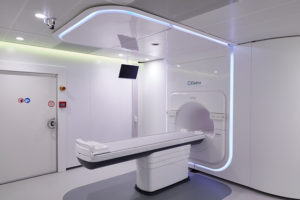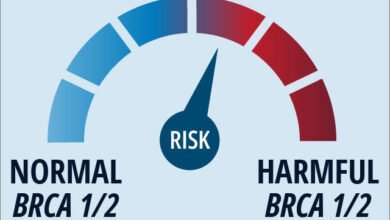Cancer Research UK – Science blog

Proton Beam Therapy Centre at The Christie
The Taylor Family Foundation has donated £2.1m to support the Cancer Research UK PROTIS clinical trial, a study that will investigate the use of proton beam therapy at two state of the art NHS facilities, located at The Christie NHS Foundation Trust in Manchester and University College Hospitals in London.
A vital key to long-term survival for cancer patients is the immediate access to radiotherapy.
Proton beam therapy (PBT) is a newer form of radiotherapy which may be more effective at treating some types of cancer, improving cure rates and reducing long-term side effects, compared with intensity modulated radiotherapy (IMRT), the current and long-standing treatment option. PBT has the potential to target tumours more precisely.
“It is fantastic to receive this support from The Taylor Family Foundation and I am extremely grateful to the trustees,” said Dr Catherine Elliott, Director of Research for Cancer Research UK.
“A vital key to long-term survival for cancer patients is the immediate access to radiotherapy. Cancer Research UK and The Christie have a long standing, effective partnership that has delivered research, innovation and world firsts which means patients have access to treatments as well as access to the latest clinical trials, such as PROTIS.
“The donation will have vast impact on our work, as we continue to connect the amazing complexity of discovery science with the needs of patients.”
The Taylor Family Foundation, which was set up in 2007 by Ian and Cristina Taylor, hopes to increase the likelihood of PBT being provided by the NHS for head and neck cancer patients.
“We are delighted to be supporting the clinical trials into proton beam therapy,” said Neville Shepherd, Trustee of The Taylor Family Foundation. “We hope to help bring about much-needed improvements in treatments for cancer patients through this research.”

Proton Beam Therapy room
Radiotherapy is currently used in the treatment of approximately 80% of head and neck cancers. PBT is a more advanced treatment where particles smaller than an atom are fired with pinpoint accuracy at tumours at over half the speed of light.
PROTIS will have national and international impact by defining the standard of care for cancer of the sinuses, a type of head and neck cancer. Should the trial meet its objectives, PBT will be routinely commissioned by the NHS. The trial investigators also hope to later broaden participation across European proton centres.

Dr David Thomson
The £2.1m donation builds on the foundation’s previous support for Cancer Research UK’s supported TORPEdO, a trial of proton beam radiotherapy for oropharyngeal cancer, led by Prof David Thomson, who is also co-lead on the PROTIS trial with Mr Jason Fleming, Senior Clinical Lecturer of Head and Neck Surgery at the Liverpool Head & Neck Centre.
“Sinonasal cancer is a rare and difficult to manage cancer,” said Prof Thomson and Mr Fleming. “Unfortunately, only about four in ten people with sinus cancer are cured.
“Radiotherapy is complicated because of the closeness to critical areas, such as the eyes, brain, inner ear, and pituitary gland that can be damaged by the treatment. Proton beam therapy may be more effective at treating sinus cancer and reduce the damage to normal tissues.
“The PROTIS trial aims to find out whether proton beam therapy can improve survival and reduce side effects for patients with sinonasal cancer. This is an under-researched area and an unmet need, so this funding is very welcome.”
Source link
#Cancer #Research #Science #blog



